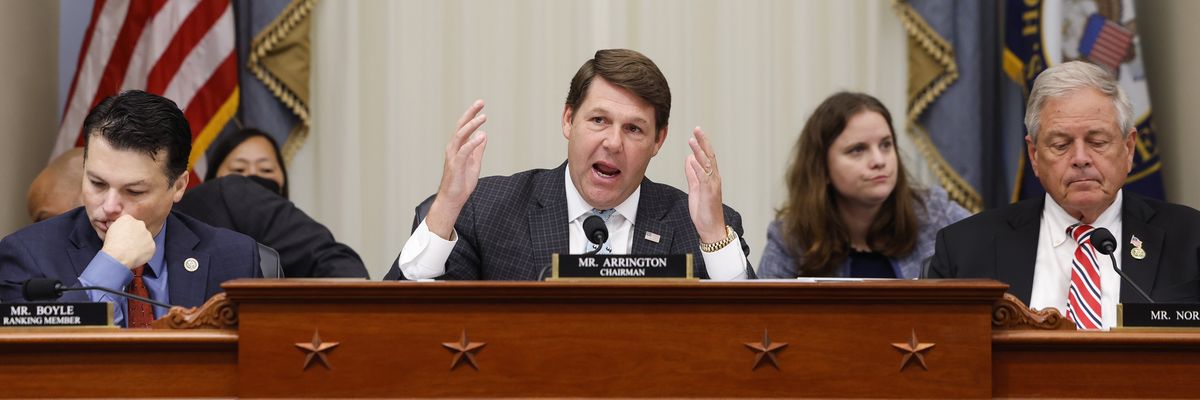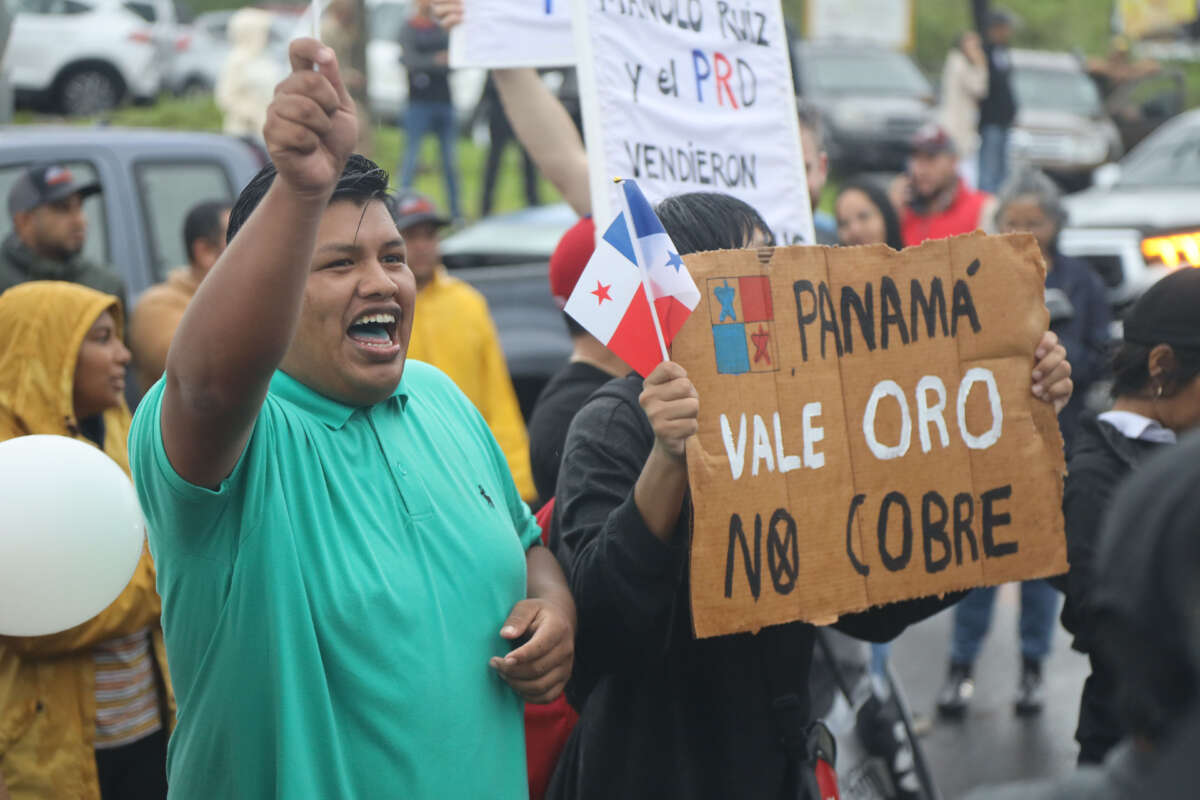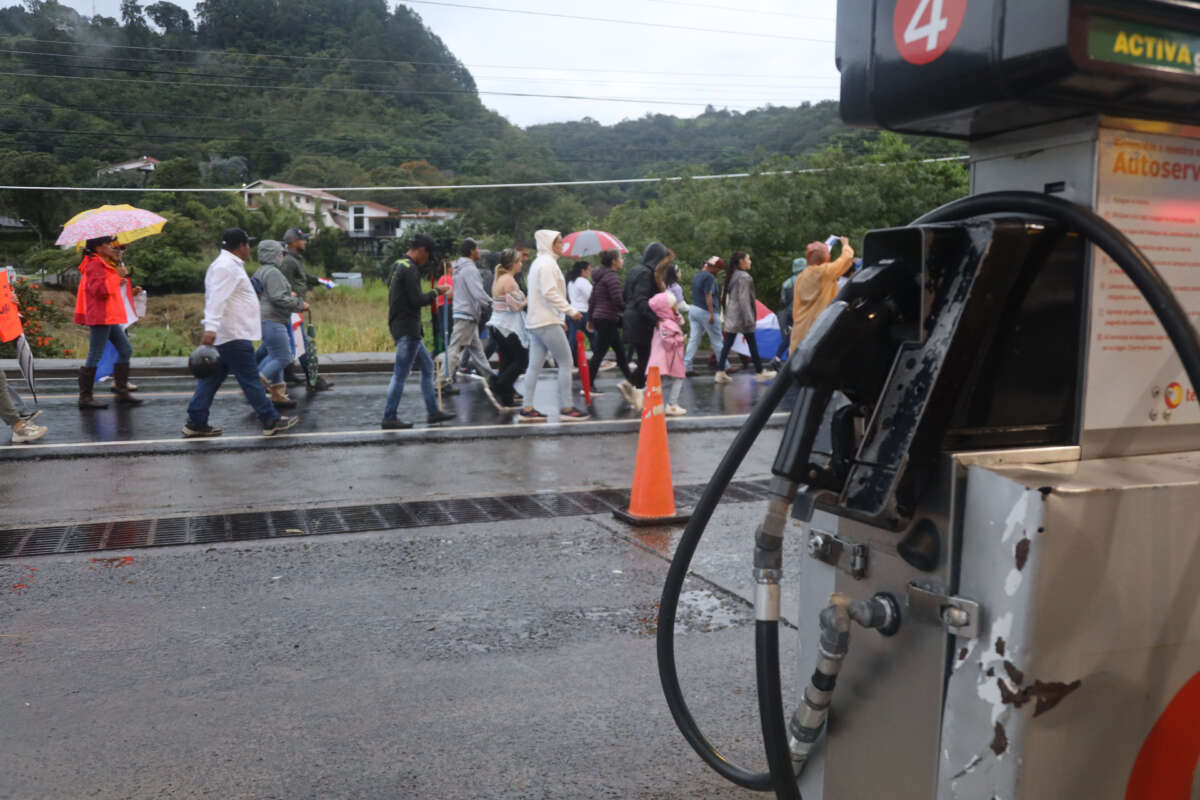'Spitting on the Constitution': Expert says Trump's immunity bid goes against America
M.L. Nestel
January 19, 2024

President Donald Trump hugs flag (Twitter)

Trump's purportedly treating the Constitution like a spittoon.
Former Acting Solicitor General Neal Katyal appearing on "The Last Word" with Ali Velshi on Friday hammered the 45th president's theory that as POTUS he can do anything he wants and remain untouchable.
"We have had 46 presidents — no one has claimed absolute immunity from the criminal law," Katyal said. "And now Donald Trump comes along and does so."
He continued:
"He is spitting on our Constitution. He is spitting on our rule of law. And I cannot think of a more disqualifying statement from a candidate for the high office..."
Katyal was reacting to how former President Donald Trump, at 2 a.m. on Thursday, posted on Truth Social an all-caps screed demanding that he's deserving of "total immunity" from criminal prosecution even if he "crossed the line" by committing crimes.
"A PRESIDENT OF THE UNITED STATES MUST HAVE FULL IMMUNITY, WITHOUT WHICH IT WOULD BE IMPOSSIBLE FOR HIM/HER TO PROPERLY FUNCTION," the former president wrote. "ANY MISTAKE, EVEN IF WELL INTENDED, WOULD BE MET WITH ALMOST CERTAIN INDICTMENT BY THE OPPOSING PARTY AT TERM END. EVEN EVENTS THAT 'CROSS THE LINE' MUST FALL UNDER TOTAL IMMUNITY, OR IT WILL BE YEARS OF TRAUMA TRYING TO DETERMINE GOOD FROM BAD. THERE MUST BE CERTAINTY."
But Katyal is clearly calling the attempt bush league.
"The argument is just not weird it's constitutionally absurd and totally ahistorical," he said. "One of the great traditions that America has had, and what we fought the Revolution about, is the idea that the king can do wrong, that he doesn't have immunity, that you can go after the highest leaders of our government.
"Our entire Constitution is structured around that principle."
Watch the interview below or click the link.
M.L. Nestel
January 19, 2024

President Donald Trump hugs flag (Twitter)

Trump's purportedly treating the Constitution like a spittoon.
Former Acting Solicitor General Neal Katyal appearing on "The Last Word" with Ali Velshi on Friday hammered the 45th president's theory that as POTUS he can do anything he wants and remain untouchable.
"We have had 46 presidents — no one has claimed absolute immunity from the criminal law," Katyal said. "And now Donald Trump comes along and does so."
He continued:
"He is spitting on our Constitution. He is spitting on our rule of law. And I cannot think of a more disqualifying statement from a candidate for the high office..."
Katyal was reacting to how former President Donald Trump, at 2 a.m. on Thursday, posted on Truth Social an all-caps screed demanding that he's deserving of "total immunity" from criminal prosecution even if he "crossed the line" by committing crimes.
"A PRESIDENT OF THE UNITED STATES MUST HAVE FULL IMMUNITY, WITHOUT WHICH IT WOULD BE IMPOSSIBLE FOR HIM/HER TO PROPERLY FUNCTION," the former president wrote. "ANY MISTAKE, EVEN IF WELL INTENDED, WOULD BE MET WITH ALMOST CERTAIN INDICTMENT BY THE OPPOSING PARTY AT TERM END. EVEN EVENTS THAT 'CROSS THE LINE' MUST FALL UNDER TOTAL IMMUNITY, OR IT WILL BE YEARS OF TRAUMA TRYING TO DETERMINE GOOD FROM BAD. THERE MUST BE CERTAINTY."
But Katyal is clearly calling the attempt bush league.
"The argument is just not weird it's constitutionally absurd and totally ahistorical," he said. "One of the great traditions that America has had, and what we fought the Revolution about, is the idea that the king can do wrong, that he doesn't have immunity, that you can go after the highest leaders of our government.
"Our entire Constitution is structured around that principle."
Watch the interview below or click the link.
2024/01/12

By Howard Schneider and Michael S. Derby
WASHINGTON (Reuters) - On the surface, Donald Trump's blistering comments about the Federal Reserve beginning in 2018 seemed a grand breach of protocol for a U.S. president, with the businessman-turned-politician railing against a "loco" central bank he thought was undermining his economic policies with interest rate increases.
Inside the Fed, however, an institution designed to be insulated from direct political influence, Trump's insults in interviews and social media posts landed with nary a whisper among policymakers, according to newly released transcripts of the U.S. central bank's eight policy meetings in 2018, a year that marked the leadership change from former Chair Janet Yellen to current chief Jerome Powell, who was handpicked by Trump.
Powell, at least in the official record of the Fed's meetings released on Friday, never uttered Trump's name, and neither did any of the Fed governors and reserve bank presidents charged with navigating what proved a surprisingly turbulent year for monetary policymakers.
The economy overall was moving along well with strong growth and low unemployment.
But the new trade policies of the Trump administration, including tariffs and curbs on trade with China, had introduced a wealth of unknowns into the monetary policy debate, including the possibility of higher inflation and growth fueled by tax cuts that figured into the Fed's gradual rate increases.
By the time of the Fed's Nov. 7-8, 2018 meeting, financial conditions had grown notably tighter, especially in the aftermath of an interview Powell had given to the Public Broadcasting Service a month earlier that stoked a sell-off in stocks and a sharp widening in credit spreads on corporate bonds.
Simon Potter, who was at the time the head of the New York Fed's markets operations, noted how the Powell interview - in which he said the Fed's policy rate was "a long way" from neutral, or the point at which it was neither stimulative nor restrictive - was seen by markets as a turning point.
The "notable rise in Treasury yields" that day, Potter said, "precipitated a subsequent reassessment of equity valuations. The move in yields was attributed in part to better-than-expected economic data as well as comments by Chairman Powell that were seen as suggesting a potentially more restrictive monetary policy path and a higher neutral rate."
"Financial conditions" were mentioned 22 times at that meeting, notably more than at either of the two previous policy gatherings, and key Fed officials, such as Richard Clarida, then the Fed's vice chair, took stock of a situation in terms that have echoed the central bank's current deliberations on whether to call time on a tightening cycle.
Clarida mentioned rising bond-yield "term premiums" and posited there was a historic case for the bond market doing "some of the Fed's job for it" - topics that have been bandied about by current central bank officials. He also described an economy not unlike the present one - with faster-than-trend growth expected soon to cool, a job market at or near full employment and risks of "excess-demand-driven" inflation seen as likely to fade and augur for a change in policymakers' outlook.
POSSIBLE REUNION
At the Dec. 18-19 meeting that year, policymakers boosted the Fed's benchmark overnight interest rate to the 2.25%-2.50% range, in what would prove to be the final increase of that hiking cycle.
"With growth expected to decline to closer to trend next year, we can afford to be patient about further policy firming, especially in an environment in which inflation is still muted," Powell told his colleagues. The Fed leader described an economy where the data had been strong but sentiment was weak, while noting upside inflation risks had declined and the risks of tighter financial conditions had risen.
While that debate included extensive staff analysis of how new international trade frictions and administration policies were influencing the economy, that was the only apparent avenue through which Trump entered the discourse.
There was only one direct reference to Trump's running commentary about the Fed, and that was to document that it was having no influence.
At the July 31-Aug. 1 meeting, Fed staff discussed how "recent comments by President Trump" had influenced the views of market participants about monetary policy, and found in a survey that investors felt the president "would have no material effect on the (rate-setting Federal Open Market) Committee's reaction function."
Though U.S. presidents typically take a hands-off attitude towards the Fed, Trump's frustration over Powell and the central bank mounted during his four years in the White House. He would eventually call Powell an enemy of the U.S., comparing him to Chinese leader Xi Jinping, and saying the Fed chief was among his worst appointments.
Trump, who is favored to be the 2024 Republican presidential nominee, is running even with President Joe Biden at the outset of the race for the White House, according to a Reuters/Ipsos poll released this week.
Should the former president win the Nov. 5 election and return to the White House next year, it will mark a reunion of sorts. Powell's current term lasts through May of 2026, 16 months after the next presidential inauguration.
(Reporting by Howard Schneider; Editing by Paul Simao)
© Reuters












 MICHAEL FOX
MICHAEL FOX






